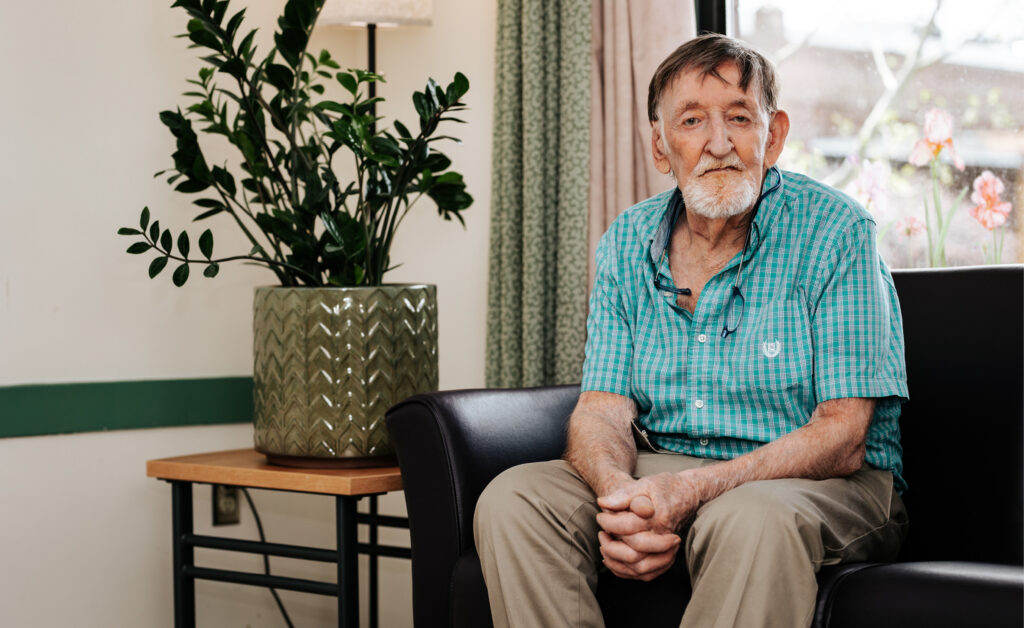Words Jamila Douhaibi
Photos Sarah Hartley Photography
Dead stick landing is the term for when a pilot lands a plane without power. Jack Schofield, now 97 years old, has landed a plane this way four times during his life as a B.C. coastal seaplane pilot. He started flying when he was 18 and still writes about his experiences today.
The precision of flying and landing a plane is balanced with a knowledge of the plane itself. Magnetos, which are a crucial part for igniting and generating planes, have to be checked every 100 hours, and have a 1,000-hour lifespan. Jack is certain that one of his trips took place with end-of-life magnetos. He was flying four men – orthodontists and dentists from New York – to a camp in northern B.C. when not one, but both, magnetos failed and the engine came to a stop. As a seasoned professional, Jack says he found the perfect spot of water for the “dead stick landing” and everyone arrived safe.
This is just one of Jack’s incredible stories after decades of piloting. He flew up and down the B.C. coast assisting with communication between different villages, transporting people in and out and bringing equipment to remote regions. When a friend set up a seaplane operation, Jack flew for him, taking people to logging camps and salmon fishing destinations. He was there for the first airline opening in Port McNeil and Alert Bay and figured out how to land in small waterways when lakes were frozen.
Outside of being an expert in aviation, Jack is also a skilled writer. He founded Aviator Magazine, as well as Coast Dog Press. The magazine, which started in 1992, is the “only print magazine in the industry right now” and has published 105 issues. Coast Dog Press has published 30 books, eight of which were written by Jack, and started its operations on Mayne Island when Jack and his wife lived there for 20 years.
Now Jack lives and writes out of the Saanich Peninsula Hospital. He says that he “woke up one day, on October 15, 2023, and found it difficult to walk.” He was diagnosed in just four days with Guillain-Barré Syndrome (GBS) which means “I can’t stand and I can’t walk,” says Jack. Even though Jack has been living in the hospital for almost two years, he spends every day in his room on two computers – one for design and one for writing. Though GBS has a higher rate of recovery if you’re younger, Jack does physio and can now walk a few steps and put himself to bed with the help of a standing pole.
Jack’s adventures are far from over. He started his first fiction novel, The Dangle, five years ago but said that he put it down for a while when he got busy. He self-published the historical fiction book earlier this year as a spy novel about the “Cambridge Five.” But some of the inspiration came from his own experiences with secret intelligence during his time in London from 1948 to 1949. Post-war tensions were still present and Jack, looking for a job, ended up at an address for a company that was part of MI6. The building was partially bombed when Jack went for the interview. He didn’t get the job but when he went back, he says “the entire building was gone.”
Currently on the writing desk is a book called Bugle Boy, about a teenager who is only 14 when the war starts, and joins as a bugle boy. Continuing to publish other aviator writers through Coast Dog Press, as well as writing a column for Aviator Magazine, Jack includes sketches of sea planes in many of his stories. His visual art appeared at the Port Hardy terminal for 40 years and is now located at the BC Aviation Museum in North Saanich.
Jack’s determination to continue exploring the province through his memories and writing shows that no one is too old for their next great adventure. Look forward to many more stories of flying and spying to come. Jack will also be doing a book signing of The Dangle at Mary’s Bleue Moon Café on Monday, May 5 between 11 a.m. and 3 p.m.




